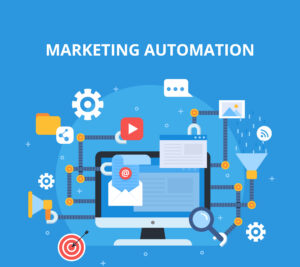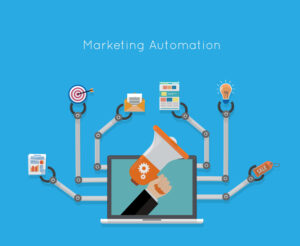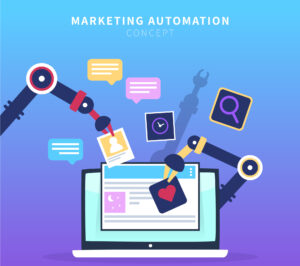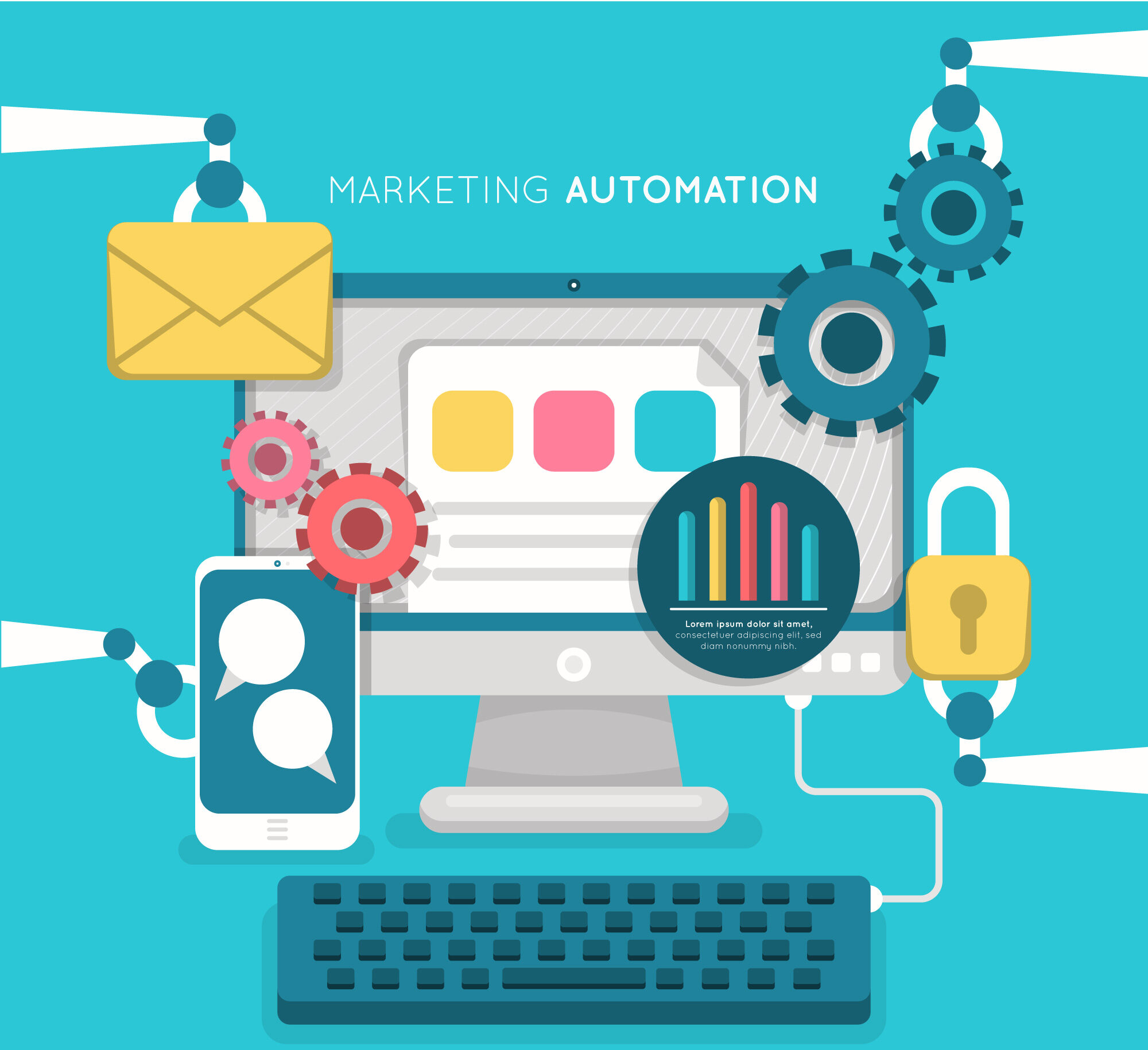Table of content
- What is Marketing Automation for Small Business?
- Demystifying Marketing Automation and its Role in Small Businesses
- The Benefits of Automating Repetitive Marketing Tasks
- Time and Resource Savings
- Increased Efficiency
- Personalization at Scale
- Improved Lead Nurturing
- Enhanced Customer Engagement
- Data-driven Decision Making
- CRM Integration: Fueling Small Business Growth
- The Pivotal Role of Customer Relationship Management (CRM) in Marketing Automation
- Seamlessly Integrating CRM into Your Marketing Strategy
- Evaluate your CRM needs
- Choose the right CRM solution
- Align your CRM and marketing objectives
- Integrate CRM with your marketing automation platform
- Configure data synchronization
- Develop automated workflows
- Monitor and analyze results
- Why small businesses should can leverage social media marketing automation
- Maximizing Marketing Efforts and Customer Relationships through Social Media Marketing Automation for Small Businesses
- Automated Social Media Posting and Scheduling
- Social Listening and Monitoring
- Lead Generation and Nurturing
- Customer Support and Engagement
- Data Collection and Analysis
- Integrating Social Media with CRM Systems
- Choosing the Right CRM to Optimize Your Marketing Automation Strategy
- Key Factors to Consider When Choosing the Right Tool for Your Business
- Comparison of the 11 Best Marketing Automation Tools
- HubSpot Marketing Hub
- ActiveCampaign
- Marketo
- Pardot
- Mailchimp
- Drip
- GetResponse
- ConvertKit
- Infusionsoft by Keap
- Brevo
- Constant Contact
- Conclusion
In the fast-paced world of small business, every moment counts. This blog post explores how integrating the best marketing automation tools can revolutionize your small business operations. We’ll delve into why this article is essential reading for small business owners and provide a roadmap for a successful marketing automation strategy.
What is Marketing Automation for Small Business?
Marketing automation refers to the use of software and technology to automate repetitive marketing tasks and workflows. It streamlines and simplifies marketing processes, allowing businesses to deliver personalized and targeted messages to their audience at scale. For small businesses, marketing automation can be a game-changer as it helps optimize marketing efforts, save time, and drive growth.
In the context of small businesses, marketing automation involves implementing a software solution that centralizes and automates various marketing activities, such as lead generation, email marketing, social media management, customer segmentation, and more. It allows small business owners and marketers to automate routine tasks, nurture leads, engage with customers, and measure the effectiveness of their marketing campaigns.

Demystifying Marketing Automation and its Role in Small Businesses
Marketing automation may sound complex, but its fundamental purpose is to simplify and streamline marketing processes for small businesses. It involves leveraging technology to automate repetitive tasks and workflows, reducing the manual effort required to execute marketing campaigns.
One of the primary goals of marketing automation for small businesses is to enhance efficiency and productivity. By automating routine tasks like email follow-ups, lead scoring, and social media scheduling, small business owners and marketers can focus their time and energy on strategic activities that require human creativity and decision-making.
Moreover, marketing automation enables small businesses to deliver personalized and targeted messages to their audience. Through segmentation and behavior tracking, automation tools can tailor marketing communications based on individual preferences, interests, and actions. This level of personalization helps build stronger connections with customers, increases engagement, and drives conversions.
Another key aspect of marketing automation is its ability to track and measure the effectiveness of marketing campaigns. Through analytics and reporting features, small businesses can gain valuable insights into the performance of their marketing efforts. They can track metrics such as email open rates, click-through rates, website conversions, and more. This data allows businesses to make data-driven decisions, optimize their marketing strategies, and allocate resources effectively.
The Benefits of Automating Repetitive Marketing Tasks

Automating repetitive marketing tasks brings several benefits to small businesses:
Time and Resource Savings
By automating tasks like email campaigns, social media posting, and lead nurturing, small businesses can save significant time and resources. Automation eliminates the need for manual execution of repetitive tasks, freeing up time for more strategic activities and reducing the risk of human error.
Increased Efficiency
Marketing automation streamlines workflows and eliminates bottlenecks in the marketing process. It enables businesses to execute campaigns more efficiently, ensuring timely and consistent delivery of marketing messages across multiple channels.
Personalization at Scale
Automation tools allow small businesses to deliver personalized experiences to their audience at scale. By segmenting their customer base and automating personalized communications, businesses can build stronger relationships and improve customer satisfaction.
Improved Lead Nurturing
Marketing automation enables businesses to nurture leads throughout the buyer’s journey. Through automated drip campaigns, personalized content, and lead scoring, small businesses can engage prospects and guide them towards making a purchase.
Enhanced Customer Engagement
Automation tools facilitate proactive engagement with customers. With features like triggered emails, personalized recommendations, and behavior-based messaging, small businesses can deliver timely and relevant content that resonates with their audience, leading to increased engagement and loyalty.
Data-driven Decision Making
Marketing automation provides valuable data and insights into the performance of marketing campaigns. By tracking key metrics and analyzing customer behavior, small businesses can make informed decisions, optimize their marketing strategies, and achieve better results.
CRM Integration: Fueling Small Business Growth
The Pivotal Role of Customer Relationship Management (CRM) in Marketing Automation
Customer Relationship Management (CRM) plays a pivotal role in enabling effective marketing automation for small businesses. CRM software serves as a centralized hub for managing customer interactions, capturing valuable data, and tracking customer journeys. By integrating CRM into your marketing automation strategy, you can enhance customer segmentation, personalize messaging, streamline workflows, and ultimately fuel the growth of your small business.
Seamlessly Integrating CRM into Your Marketing Strategy
Seamlessly integrating CRM into your marketing strategy is essential for maximizing the benefits of marketing automation. Here are some key steps to ensure a successful integration:
Evaluate your CRM needs
Begin by assessing your business requirements and identifying the specific CRM features and functionalities that align with your marketing goals. Consider factors such as contact management, lead tracking, sales pipeline management, reporting and analytics, and integration capabilities with other tools or platforms you use.
Choose the right CRM solution
Research and choose a CRM platform that best suits your business needs. Look for a CRM system that is user-friendly, scalable, and offers robust automation capabilities. Consider factors such as pricing, ease of use, customization options, and third-party integrations.
Align your CRM and marketing objectives
Ensure that your CRM and marketing teams are aligned on the objectives and goals of your marketing automation initiatives. Collaboration between these teams is crucial for successful integration and effective utilization of CRM data in your marketing campaigns.
Integrate CRM with your marketing automation platform
Once you have selected a CRM solution, integrate it seamlessly with your marketing automation platform. Many marketing automation tools offer pre-built integrations with popular CRM systems, making the integration process smoother. Syncing your CRM and marketing automation systems allows for data sharing, enabling a holistic view of customer interactions and enabling personalized and targeted marketing campaigns.
Configure data synchronization
Set up data synchronization between your CRM and marketing automation platforms to ensure that customer data, such as contact information, purchase history, and engagement metrics, is automatically updated and accessible in real-time. This synchronization enables you to leverage accurate and up-to-date customer data for segmentation, personalization, and targeted marketing efforts.
Develop automated workflows
Leverage the power of CRM and marketing automation to develop automated workflows that align with your customer journey. Utilize CRM data to trigger personalized email campaigns, lead nurturing sequences, and targeted offers based on specific customer behaviors or milestones. By automating these processes, you can optimize customer engagement and drive conversions.
Monitor and analyze results
Regularly monitor and analyze the results of your integrated CRM and marketing automation efforts. Track key metrics such as customer acquisition, lead conversion rates, customer lifetime value, and campaign performance. Use these insights to refine your strategies, identify areas for improvement, and make data-driven decisions to fuel the growth of your small business.
Why small businesses should can leverage social media marketing automation

Small businesses can greatly benefit from leveraging social media marketing automation. Firstly, automation allows small businesses to streamline their social media efforts by scheduling posts in advance, ensuring a consistent and regular presence on various platforms without requiring constant manual monitoring and posting. This saves valuable time and resources, allowing small business owners to focus on other important aspects of their operations. Secondly, automation tools provide the ability to track and analyze social media metrics, helping businesses gain insights into their audience’s preferences and behaviors. This data-driven approach enables small businesses to refine their marketing strategies, deliver more targeted content, and ultimately achieve better engagement and conversion rates. Additionally, automation can enhance customer relationship management by automating lead generation, nurturing, and customer support processes. By leveraging automation tools, small businesses can efficiently capture leads, nurture them through personalized automated campaigns, and provide timely customer support through chatbots and automated messaging. Overall, social media marketing automation empowers small businesses to optimize their efforts, increase efficiency, and effectively engage with their target audience, leading to improved brand visibility, customer satisfaction, and business growth.
Maximizing Marketing Efforts and Customer Relationships through Social Media Marketing Automation for Small Businesses
Automated Social Media Posting and Scheduling
Small businesses can save time and effort by using social media automation tools to schedule and post content across various social media platforms. By planning and creating content in advance, businesses can maintain a consistent presence on social media without the need for manual posting. This automation allows small businesses to focus on other aspects of their operations while ensuring a steady flow of engaging content for their audience.
Social Listening and Monitoring
Social media automation tools can help small businesses monitor and listen to conversations happening on social media platforms. By setting up automated alerts and notifications, businesses can stay informed about mentions of their brand, industry trends, and customer feedback. This enables them to respond promptly to customer inquiries, address issues, and engage in meaningful conversations, ultimately strengthening their customer relationships.
Lead Generation and Nurturing
Social media automation can assist small businesses in generating and nurturing leads. By using automation tools to track user interactions, businesses can identify potential leads based on their engagement with social media content. They can then automatically segment these leads and initiate targeted nurturing campaigns, such as sending personalized messages, educational content, or exclusive offers. This automation helps small businesses cultivate relationships with leads, move them through the sales funnel, and increase conversion rates.
Customer Support and Engagement
Social media automation can streamline customer support for small businesses. Chatbots and automated messaging systems can be integrated into social media platforms to provide instant responses to commonly asked questions, support ticket creation, and basic troubleshooting. This automation ensures that customers receive timely assistance, even outside regular business hours, enhancing their overall experience and satisfaction.
Data Collection and Analysis
Social media automation tools can capture and analyze valuable data about customer interactions, engagement metrics, and preferences. Small businesses can leverage this data to gain insights into their target audience, refine their marketing strategies, and make data-driven decisions. By understanding customer behavior and preferences, businesses can tailor their offerings, personalize their communications, and deliver a more personalized customer experience.
Integrating Social Media with CRM Systems
Small businesses can integrate social media automation tools with their CRM systems to centralize customer data and create a holistic view of their customers’ interactions. This integration allows businesses to track social media engagement, monitor customer interactions, and consolidate data from various touchpoints. By linking social media data with CRM systems, small businesses can gain a comprehensive understanding of their customers and provide more personalized and targeted marketing efforts.
Choosing the Right CRM to Optimize Your Marketing Automation Strategy
Now that we’ve covered the pivotal role of CRM integration in marketing automation, selecting the right CRM system for your small business needs. With many solutions to choose from, it can be challenging to determine which platform best aligns with your marketing automation goals, integrates seamlessly, and provides the functionality your teams require.
When evaluating CRM options, be sure to consider several key factors, including scalability, ease of use, integration capabilities, and customization. In the next section, we’ll dive into the details of 11 specific criteria small businesses should assess when selecting a marketing automation software and integrated CRM system. Having the right set of standards will enable you to objectively compare solutions against your unique business requirements and implementation strategy. With an optimized marketing technology stack, you’ll be equipped to fully leverage automation and fuel sustainable growth.
Key Factors to Consider When Choosing the Right Tool for Your Business
When selecting a marketing automation software for your small business, there are several key factors to consider:
Budget
Determine your budget and choose a tool that aligns with your financial resources. Consider both upfront costs and ongoing subscription fees.
Scalability
Assess whether the software can scale with your business as it grows. Ensure that the platform can handle your current needs and accommodate future expansion.
Integration Capabilities
Evaluate the software’s ability to integrate with other tools and platforms you use, such as CRM systems, e-commerce platforms, and customer support software. Integration enables seamless data flow and improves overall efficiency.
Ease of Use
Consider the user-friendliness of the software. Look for intuitive interfaces, customizable workflows, and easy-to-understand reporting and analytics.
Feature Set
Evaluate the features offered by each software option. Consider which features are essential for your business, such as email marketing, lead nurturing, segmentation, analytics, and CRM integration.
Customer Support
Assess the level of customer support provided by the software vendor. Look for options like live chat, phone support, knowledge bases, and community forums.
Training and Resources
Consider the availability of training materials, tutorials, and resources provided by the software vendor. Adequate training and support can help your team effectively utilize the software’s capabilities.
Customization
Determine the level of customization the software offers. Consider whether you can tailor automation workflows, templates, and reports to suit your specific business needs.
Reporting and Analytics
Evaluate the reporting and analytics capabilities of the software. Look for tools that provide detailed insights into campaign performance, customer behavior, and ROI to help you make data-driven decisions.
Compliance and Security
Ensure that the software adheres to industry standards and regulations regarding data privacy and security. Consider whether the software offers features like encryption, data backup, and compliance with GDPR or other relevant regulations.
Reviews and Reputation
Research the reputation and customer reviews of the software options you are considering. Check online platforms, review sites, and forums to gather insights from other users’ experiences.
| Tool | Price | Scalability | Integration Capabilities | Ease of Use | Features | Customer Support | Training and Resources | Customization | Reporting and Analytics |
| HubSpot Marketing Hub | Starting at $50/month | Very scalable | Excellent | Good | Very comprehensive | Excellent | Very good | Good | Excellent |
| ActiveCampaign | Starting at $15/month | Very scalable | Excellent | Good | Comprehensive | Good | Very good | Good | Excellent |
| Marketo | Starting at $895/month | Very scalable | Excellent | Good | Very comprehensive | Good | Very good | Good | Excellent |
| Pardot | Starting at $1,250/month | Very scalable | Excellent | Good | Very comprehensive | Good | Very good | Good | Excellent |
| Mailchimp | Starting at $9.99/month | Very scalable | Good | Easy | Good | Good | Good | Good | Good |
| Drip | Starting at $39/month | Very scalable | Good | Easy | Comprehensive | Good | Very good | Good | Good |
| GetResponse | Starting at $15/month | Very scalable | Good | Easy | Comprehensive | Good | Good | Good | Good |
| ConvertKit | Starting at $29/month | Very scalable | Good | Easy | Good | Good | Good | Good | Good |
| Infusionsoft by Keap | Starting at $199/month | Very scalable | Good | Good | Comprehensive | Good | Good | Good | Good |
| Sendinblue | Starting at $25/month | Very scalable | Good | Easy | Comprehensive | Good | Good | Good | Good |
| SharpSpring | Starting at $550/month | Very scalable | Good | Good | Comprehensive | Good | Good | Good | Good |
Comparison of the 11 Best Marketing Automation Tools
HubSpot Marketing Hub
HubSpot offers a comprehensive marketing automation platform that includes features like email marketing, lead nurturing, CRM integration, and analytics. It’s known for its user-friendly interface and scalability options. Pricing varies based on the features and the size of your business.
ActiveCampaign
ActiveCampaign is a popular marketing automation tool that offers advanced automation features like behavior tracking, dynamic content, and split testing. It provides robust email marketing capabilities and integrates with various third-party applications. Pricing is based on the number of contacts and features needed.
Marketo
Marketo is a powerful marketing automation platform suitable for enterprise-level businesses. It offers advanced features for lead management, email marketing, campaign orchestration, and analytics. Marketo provides scalability and customization options but can be more complex to set up and use. Pricing is based on the features and the size of your business.
Pardot
Pardot, a Salesforce product, is designed for B2B marketing automation. It offers lead management, email marketing, and advanced reporting capabilities. Pardot integrates seamlessly with Salesforce CRM, making it an excellent choice for businesses already using Salesforce. Pricing is based on the number of users and features required.
Mailchimp
Mailchimp is a popular marketing automation tool that caters to small and medium-sized businesses. It offers features like email marketing, audience segmentation, and basic automation workflows. Mailchimp is known for its user-friendly interface and affordable pricing plans based on the number of contacts.
Drip
Drip is an e-commerce-focused marketing automation platform that provides personalized email marketing, behavioral tracking, and automation workflows. It offers deep integrations with various e-commerce platforms and is known for its powerful segmentation capabilities. Pricing is based on the number of subscribers.
GetResponse
GetResponse is a versatile marketing automation tool that combines email marketing, automation workflows, and landing page creation. It offers a user-friendly interface and provides features like webinar hosting and e-commerce integration. Pricing is based on the number of contacts.
ConvertKit
ConvertKit is a popular choice for content creators and bloggers. It offers email marketing, automation workflows, and customizable landing pages. ConvertKit’s strength lies in its simplicity and ease of use. Pricing is based on the number of subscribers.
Infusionsoft by Keap
Infusionsoft by Keap is a robust marketing automation platform designed for small businesses. It offers features like CRM, email marketing, e-commerce, and automation workflows. Infusionsoft provides a comprehensive solution but may have a steeper learning curve. Pricing is based on the number of contacts.
Brevo
Brevo (Formerly as Sendinblue) is an all-in-one marketing automation platform that includes email marketing, SMS marketing, chat, and CRM. It offers a user-friendly interface and affordable pricing plans based on the number of emails sent per month.
Constant Contact
Constant Contact (Formerly as SharpSpring) is a feature-rich marketing automation platform suitable for small to mid-sized businesses. It provides features like email marketing, CRM integration, lead scoring, and analytics. SharpSpring offers flexible pricing based on the number of leads.
Overall, HubSpot Marketing Hub, ActiveCampaign, Marketo, and Pardot are the most comprehensive and scalable marketing automation tools, but they are also the most expensive. Mailchimp, Drip, GetResponse, ConvertKit, Infusionsoft by Keap, Sendinblue, and SharpSpring are more affordable options, but they may not have all of the features that larger businesses need.
As for ease of use, all of the tools on this list are relatively easy to use, but Mailchimp, Drip, GetResponse, and ConvertKit are generally considered to be the most user-friendly.
In terms of customer support, all of the tools on this list offer good customer support, but HubSpot Marketing Hub, ActiveCampaign, Marketo, and Pardot offer the most comprehensive support.
Training and resources are also important to consider when choosing a marketing automation tool. All of the tools on this list offer some form of training and resources, but HubSpot Marketing Hub, ActiveCampaign, Marketo, and Pardot offer the most comprehensive training and resources.
Customization is also an important factor to consider, especially for larger businesses. HubSpot Marketing Hub, ActiveCampaign, Marketo, and Pardot offer the most customization options.
Finally, reporting and analytics are essential for tracking the results of your marketing campaigns. All of the tools on this list offer good reporting and analytics, but HubSpot Marketing Hub, ActiveCampaign, Marketo, and Pardot offer the most comprehensive reporting and analytics.
Ultimately, the best marketing automation tool for you will depend on your specific needs and budget. If you are a small business on a tight budget, Mailchimp, Drip, GetResponse, or ConvertKit may be a good option for you. If you are a larger business with more complex needs, HubSpot Marketing Hub, ActiveCampaign, Marketo, or Pardot may be a better option.
Conclusion
In conclusion, marketing automation is not just a luxury for large corporations; it’s a necessity for small businesses looking to thrive in a competitive world. Armed with the best marketing automation software and strategies, you can optimize your marketing efforts, save precious time, and propel your business to new heights.
Key Takeaways:
- Marketing automation streamlines repetitive tasks, freeing up time for strategic endeavors.
- Selecting the right marketing automation software is crucial; it should align with your business’s unique needs.
- Email marketing, CRM integration, and social media automation are core components of a successful strategy.
- Stay updated with automation trends to remain competitive and future-proof your business.
- Personalization is the secret sauce for effectively engaging your audience.
Now, it’s time to take action. Empower your small business with the best marketing automation tools and watch it flourish.





0 Comments